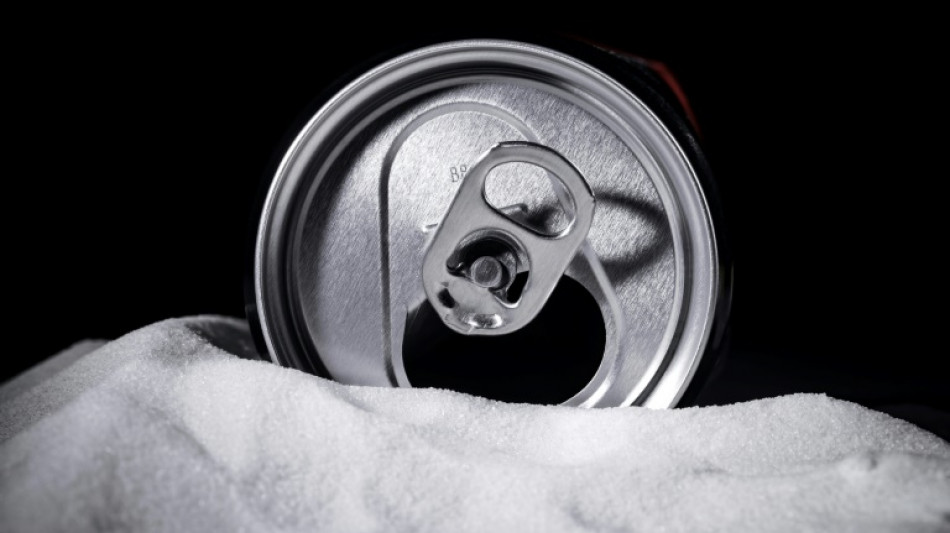
-
 Toronto festival head says Trump tariffs would hurt film quality
Toronto festival head says Trump tariffs would hurt film quality
-
Trump talks tough on China, but early focus elsewhere

-
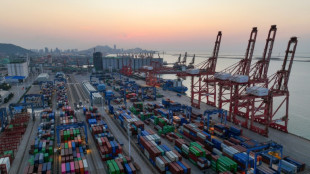 China vows to defend 'justice' in looming trade talks with US
China vows to defend 'justice' in looming trade talks with US
-
Man Utd seek to finish off Athletic Bilbao in chase for Europa glory

-
 AP to continue crediting 'Napalm Girl' photo to Nick Ut after probe
AP to continue crediting 'Napalm Girl' photo to Nick Ut after probe
-
Colombia moves to join China's Belt and Road

-
 Martinez cried 'for two days' after nearly missing Barca triumph with injury
Martinez cried 'for two days' after nearly missing Barca triumph with injury
-
US, Chinese officials to hold trade talks in Switzerland

-
 Barca 'will be back' after painful Champions League exit to Inter, says Flick
Barca 'will be back' after painful Champions League exit to Inter, says Flick
-
US jury awards WhatsApp $168 mn in NSO Group cyberespionage suit
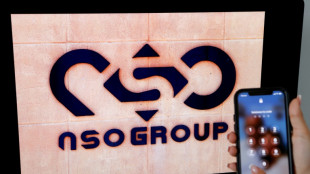
-
 India launches strikes on Pakistan, Islamabad vows to 'settle the score'
India launches strikes on Pakistan, Islamabad vows to 'settle the score'
-
Trump vows 'seamless' experience for 2026 World Cup fans
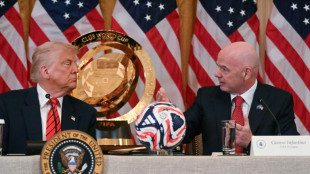
-
 Motown legend Smokey Robinson sued for sexual assault
Motown legend Smokey Robinson sued for sexual assault
-
Trump hopes India-Pakistan clashes end 'very quickly'

-
 Frattesi shoots Inter into Champions League final after Barcelona epic
Frattesi shoots Inter into Champions League final after Barcelona epic
-
India launches strikes on Pakistan, Islamabad vows retaliation

-
 India launches strikes on Pakistan as Islamabad vows retaliation
India launches strikes on Pakistan as Islamabad vows retaliation
-
Alpine shock as F1 team principal Oakes resigns
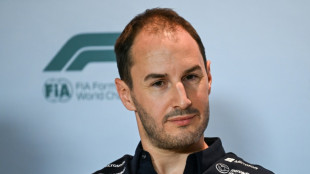
-
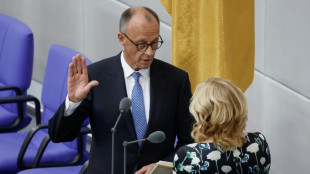 Merz elected German chancellor after surprise setback
Merz elected German chancellor after surprise setback
-
Gujarat edge Mumbai in last-ball thriller to top IPL table

-
 Israel's plan for Gaza draws international criticism
Israel's plan for Gaza draws international criticism
-
SpaceX gets US approval to launch more Starship flights from Texas

-
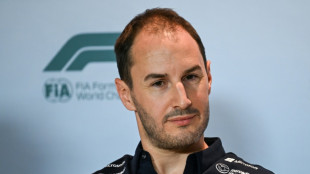 Alpine F1 team principal Oakes resigns
Alpine F1 team principal Oakes resigns
-
Colombia's desert north feels the pain of Trump's cuts

-
 Arsenal determined 'to make a statement' against PSG in Champions League semi-final
Arsenal determined 'to make a statement' against PSG in Champions League semi-final
-
Top US court allows Trump's ban on trans troops to take effect

-
 Whole lotta legal argument: Led Zeppelin guitarist Page sued
Whole lotta legal argument: Led Zeppelin guitarist Page sued
-
US, Yemen's Huthis agree ceasefire: mediator Oman

-
 Johnson receives special invite to PGA Championship
Johnson receives special invite to PGA Championship
-
Trump says US should to stop 'subsidizing' Canada as trade talks continue

-
 Indian PM vows to stop waters key to rival Pakistan
Indian PM vows to stop waters key to rival Pakistan
-
Thousands demonstrate in Panama over deal with US military

-
 Canada 'never for sale', Carney tells Trump
Canada 'never for sale', Carney tells Trump
-
Vatican readies for conclave lockdown

-
 Championship club Watford sack manager Cleverley
Championship club Watford sack manager Cleverley
-
New German leader Merz stumbles out of the blocks
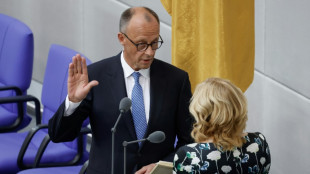
-
 'Wagatha Christie': Vardy and Rooney settle on legal costs
'Wagatha Christie': Vardy and Rooney settle on legal costs
-
Defending Rome champion Zverev blames burn out on poor run of form

-
 No signs of US recession, Treasury Secretary says
No signs of US recession, Treasury Secretary says
-
Israel pummels Yemen airport in reprisal against Huthis

-
 Swiatek struggling with 'perfectionism' ahead of Rome
Swiatek struggling with 'perfectionism' ahead of Rome
-
Germany's Merz elected chancellor after surprise setback

-
 Ukraine fires drones on Moscow days before WWII parade
Ukraine fires drones on Moscow days before WWII parade
-
EU proposes ending all Russian gas imports by 2027

-
 UK, India strike trade deal amid US tariff blitz
UK, India strike trade deal amid US tariff blitz
-
Move over Met Ball. For fashion wow head to the Vatican

-
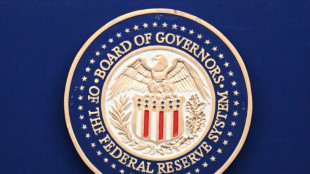 Stocks retreat as traders cautious before Fed rates call
Stocks retreat as traders cautious before Fed rates call
-
EDF complaint blocks Czech-Korean nuclear deal

-
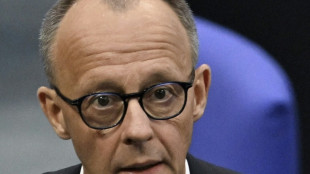 Germany's Merz faces new vote for chancellor after surprise loss
Germany's Merz faces new vote for chancellor after surprise loss
-
US trade deficit hit fresh record before new Trump tariffs


Consuming artificial sweeteners linked to cancer risk: study
Consuming artificial sweetener could increase the risk of developing cancer, a large-scale study suggested Thursday, but experts not involved in the research said it was not enough proof to consider changing current health advice.
Sweeteners are consumed by millions every day in products like diet soda, partly as a way to avoid weight gain from sugar -- but how healthy these substitutes are themselves has long been a matter of controversy.
To assess the cancer risk of sweeteners, researchers analysed the data of more than 100,000 people in France who self-reported their diet, lifestyle and medical history in intervals between 2009-2021 as part of the NutriNet-Sante study.
They then compared consumption to the rate of cancer, while adjusting for other variables such as smoking, poor diet, age and physical activity.
The participants who consumed the largest amount of sweeteners, "beyond the median amount, had an increased cancer risk of 13 percent compared to non-consumers," Mathilde Touvier, research director at France's INSERM institute and the study's supervisor, told AFP.
The study, published in the journal PLOS Medicine, said that a higher cancer risk was particularly seen with sweeteners aspartame and acesulfame potassium -- both used in many soft drinks including Coke Zero.
Out of the 103,000 participants, 79 percent were women and 37 percent consumed artificial sweeteners.
Soft drinks accounted for more than half of the artificial sweeteners consumed, while table-top sweeteners represented 29 percent.
The study found that "higher risks were observed for breast cancer and obesity-related cancers".
Touvier said "we cannot totally exclude biases linked to the lifestyle of consumers", calling for further research to confirm the study's results.
The US National Cancer Institute and Cancer Research UK both say that sweeteners do not cause cancer, and they have been authorised for use by the European Food Safety Authority.
- 'Not proof' -
"The relationship between artificial sweetener consumption and cancer risk is a controversial one, going back to the 1970s when (sweetener) cyclamate was banned for being linked to bladder cancer in rats -- although this was never shown to be the case in humans," said James Brown, a biomedical scientist at Britain's Aston University.
Brown, who was not involved in the study, told AFP that it was "reasonably well-designed" and had an "impressive" sample size.
But he added he did not "believe the current study provides strong enough evidence" for Britain's National Health Service to "change its advice just yet".
Michael Jones of The Institute of Cancer Research, London said that the link reported in the study "does not imply causation" and was "not proof that artificial sweeteners cause cancer".
He said the findings could suggest that "cancer risk may be raised in the type of person who uses artificial sweetener rather than the sweetener itself."
Thursday's findings also do not mean consumers should rush back to sugary drinks -- a 2019 NutriNet-Sante study found that they were also linked to a higher risk of several cancer types.
Brown said that not all sweeteners were equal, with some such as stevia showing health benefits.
Artificial sweeteners are "still likely a useful tool that can help reduce weight gain when replacing sugar -- if the right sweetener is used," he said.
Th.Berger--AMWN